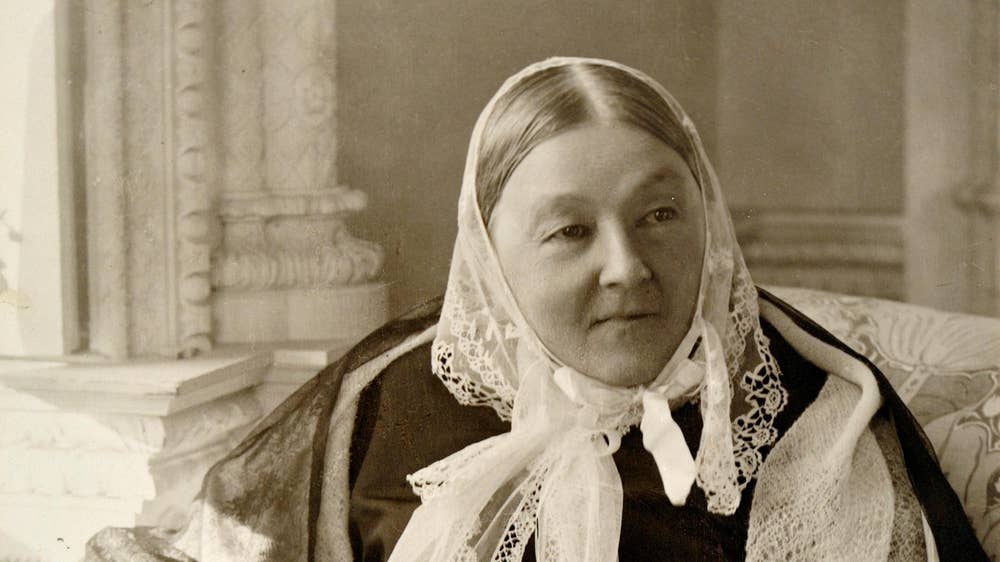A message to our nurses in 2020

Nurses globally and in Aotearoa New Zealand are at the forefront of care this year as we celebrate the International Year of the Nurse and the Midwife. It’s International Nurses Day on Tuesday 12 May and the 200th birthday of Florence Nightingale, whose influence on modern nursing will always be remembered.
Our nurses have never been under more pressure here and across the Pacific. This year we are celebrating and acknowledging these quiet heroes who are always wanted where they are needed, but never more so than during a pandemic.
Leaupepe Peta Karalus has a relentless passion for healthcare in her community which started when she arrived in New Zealand from Western Samoa in the 70s as a very homesick 17-year old after being awarded a scholarship to study nursing. At the time, she just wanted to go home.
Decades after starting her nursing training, Karalus, a well-known Pasifika leader, has nursed here and in her home country, continued her education and has been instrumental in teaching hundreds of nurses at Wintec.
This Wintec Honorary Fellowship recipient has never stopped being an advocate for nurses, their education and the health and wellbeing of Pasifika people.
Based now in Samoa, she is unexpectedly here in New Zealand with her family during the COVID-19 lockdown and she has a strong message for today’s nurses and nursing students.
“Nursing, and in fact all of healthcare is changing rapidly and COVID-19 has intensified and highlighted the big needs. Do we have the ability and the kindness to care for more people? Do we have the openness to know more? We need to reflect on what is needed to continue a high standard of evidence-based care. But what is needed most is more dedicated, highly trained people - we need more nurses.”
Karalus is also the founder of K’aute Pasifika which has grown to support the health and wellbeing of more than 4,000 Pacifika people around Hamilton. It is now led by her daughter Leaupepe Rachel Karalus. She says that healthcare and support has never been more important and there’s demand for more Pasifika and Māori nurses to support their communities as they continue to be under-represented in healthcare.
“The first step for our future nurses is to apply. Then aim high, it’s good to qualify but think further to post-graduate level. The more highly qualified nurses we have from our community, the better influence they will have.
“Nurses are people who want to care for others and relieve suffering, and nursing is a rich and very rewarding vocation with opportunities galore. As a New Zealand registered nurse, you can work anywhere.”
As the world celebrates 2020 as the Year of the Nurse, Wintec celebrates 42 years delivering pre-registration nursing education and 19 years in the delivery of post-graduate nursing programmes.
Wintec Chief Executive David Christiansen says that Wintec’s longevity in delivering high quality nursing training is only getting stronger.
“Wintec has been at the heart of nursing education in the Midlands Health region for more than 40 years. Our investment in encouraging and guiding tomorrow’s nurses is ongoing and we are successful because of our strong partnerships with health leaders and our approach to supporting our learners.”
Wintec is committed to producing nursing graduates who are bicultural partners, responsive to the aspirations of mana whenua (responding to and respecting Māori tribal communities) and Te Tiriti o Waitangi (The Treaty of Waitangi) principles.
Wintec Centre for Health and Social Practice, Director, Professor Sharon Brownie and nursing team managers, Helen Nielsen and Glennis Birks lead a dedicated teaching team at Wintec. putting cultural responsiveness at the heart of nursing practice.
“We are proud of our nursing graduates who provide professional, compassionate and culturally responsive nursing care within a variety of health care settings including rural, remote and Māori and Pasifika contexts. They hold the promise of being agents of change committed to the reduction of health disparities within the communities they work in,” Professor Brownie says.
Face-to-face gatherings to celebrate the International Day of the Nurse and the International Year of the Nurse and the Midwife are on hold due to the COVID-19 pandemic which has put the eyes of the world on the nursing profession, however, Dr Brownie says, there is much we can do to profile our heroes online.
The wider Wintec nursing whānau /family are joining in other ways to acknowledge and celebrate the vital work of nurses, including sending messages of support to students who, along with their tutors, have been learning online during the national lockdown.
The Wintec nursing team have a special message for nurses.
“This special day and year for nursing, encourages us to pause to acknowledge and applaud all nurses on the frontline of the COVID-19 pandemic – we extend our thoughts and our thanks to you all.”
Florence Nightingale would no doubt, be very proud of our nurses today.
 International Nurses Day falls on 12 May – to coincide with the birthday of Florence Nightingale, one of the founders of modern nursing. She famously said: “How very little can be done under the spirit of fear” encouraging generations of nurses to be brave and strong in spirit.
International Nurses Day falls on 12 May – to coincide with the birthday of Florence Nightingale, one of the founders of modern nursing. She famously said: “How very little can be done under the spirit of fear” encouraging generations of nurses to be brave and strong in spirit.
Find out more about studying nursing at Wintec Centre for Health and Social Practice.
Read more:
New Zealand Aotearoa midwives this is your day today
Global report released by WHO puts nursing under the spotlight
The secrets to the best flaky pastry, crispy donuts and dreamy vanilla slice delivered to students
How this teacher is tying knots around learning online


















